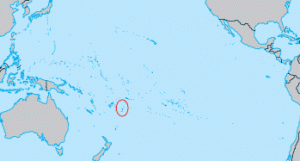Children of Tonga
Realizing Children’s Rights in Tonga
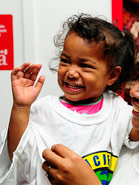
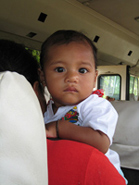
Despite a marked improvement in children’s rights over the last few years, the situation in Tonga is still far from perfect. The law does not acknowledge the serious impact and consequences of both poverty and obesity on a child’s development.
Population: 106.300 Life expectancy: 72,8 years |
Main problems faced by children in Tonga:
Justice
Tonga has neither a child-specific justice system, nor juvenile detention centres for minors. As a result, children’s rights and best interests are not always duly taken into account within the legal process.
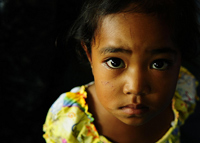 Corporal punishment is forbidden at school, but it is permitted in the home and inside the criminal system. A child in conflict with the law may, therefore, be subject to flagellation (whipping) from the age of 7 instead of or as well as a prison sentence. A whip is also used for discipline in prisons and in juvenile delinquency centres.
Corporal punishment is forbidden at school, but it is permitted in the home and inside the criminal system. A child in conflict with the law may, therefore, be subject to flagellation (whipping) from the age of 7 instead of or as well as a prison sentence. A whip is also used for discipline in prisons and in juvenile delinquency centres.
Food plays an important role in Tonga’s culture. As a result, such customs cause serious weight related issues, and, according to the WHO’s research, 60% of the population was overweight in 2004. This has been further aggravated by the country’s recent economical prosperity which has resulted in a richer diet. Obesity is now a problem in children at an early age, and is leading to numerous health problems, such as heart and lung disease as well as joint problems. Despite the country’s recent development, the infant mortality rate remains far too high.
The authorities are struggling to alter this trend as resources devoted to health issues are already stretched too far. The challenge now is how to increase such resources.
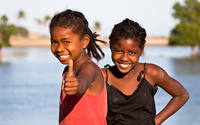 Tonga is one of the most developed island nations of the Pacific, and the level of poverty has been greatly reduced over the course of the last ten years. However, not all people have escaped poverty. 4% of the population live on less than 1 US $ per day and 6.7% of homes live beneath the dietary poverty line, meaning that they are unable to financially cover the cost of their daily food needs.
Tonga is one of the most developed island nations of the Pacific, and the level of poverty has been greatly reduced over the course of the last ten years. However, not all people have escaped poverty. 4% of the population live on less than 1 US $ per day and 6.7% of homes live beneath the dietary poverty line, meaning that they are unable to financially cover the cost of their daily food needs.
Therefore, the most vulnerablefamilies live off their own produce. This in turn results intheir children dropping out of school, as they are needed to work the fields and plantations. Tonga’s otherwise excellent education record suffers a drop in statistic results.
Although disabled children do not suffer social discrimination, they are unable to benefit from all of their rights due to a lack of infrastructure and poor communication on the part of the government. The Minister of Education is attempting to slowly integrate such children into mainstream schools. However, their education is largely taken care by the special educational facilities from The Red Cross.
The small Chinese community in Tonga, are active in various economic sectors, but are subject to social discrimination and crime.
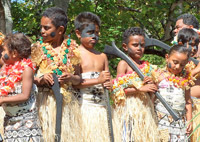 Women are also victims of discrimination by the law, primarily regarding issues of inheritance and ownership. For example, a male born outside of marriage may inherit his father’s assets, while the mother and female child from that marriage have their inheritance rights overlooked.
Women are also victims of discrimination by the law, primarily regarding issues of inheritance and ownership. For example, a male born outside of marriage may inherit his father’s assets, while the mother and female child from that marriage have their inheritance rights overlooked.
Children who come from a Chinese minority, as well as young girls, do not benefit from their social and economic rights. Discrimination prevents them from a life with peace and security.
Environment
With a rate of 1.3 tonnes of CO2 emissions per person per year, the country’s ecological footprint compromises a child’s right to live and grow up in a healthy environment, and therefore has an impact on the life and future prospects for Tongan children.


